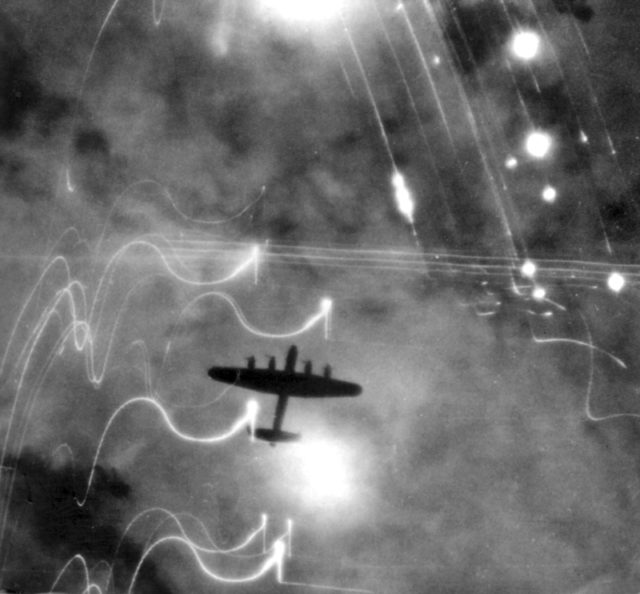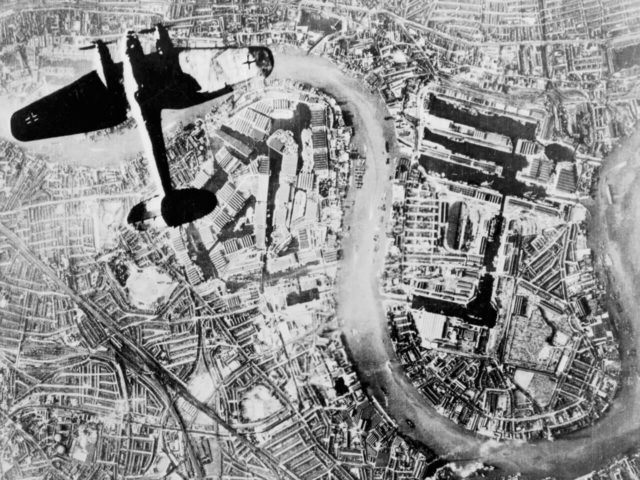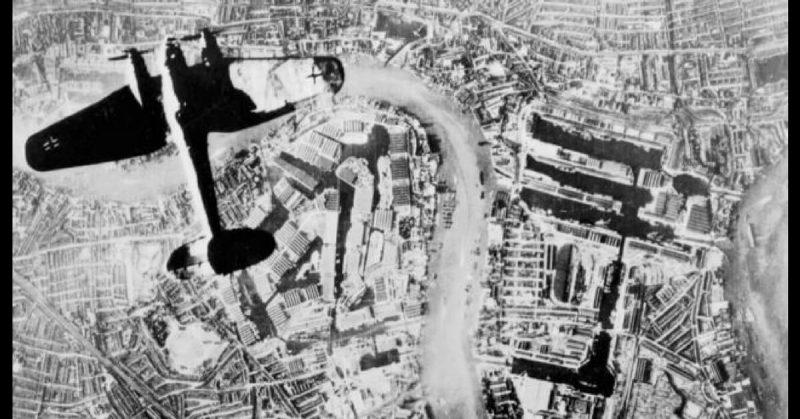Destructive bombing raids against Germany were a vital part of World War Two. They let the Allies lash out against the Nazi war machine long before they landed troops in Europe. A belief persisted at every stage that these attacks were effective in damaging the German war effort.
In reality, the Allies never really knew whether these bombing campaigns were working.
Lack of Agents on the Ground
The unexpectedly swift fall of France created a problem for the Allies. Unprepared for this event, they had few secret agents on the continent and great difficulty contacting them. Those they sent there were often caught, as happened to the unfortunate agent whose wireless broadcast on the same frequency as a local Panzer unit.
As a result, the Allies could not obtain evidence from on the ground of what effect the bombs were having. Unless they got lucky with local contacts, there was no-one to take a close look.
German Communications Networks
From early in the war, the Allies were intercepting German wireless military communications. Cryptographers broke the ciphers for a range of German messages, including local radio chatter and some of the high-level Enigma transmissions.
However, it did not help to understand what was happening in Germany, such as the impact of bombing raids. There, the Germans communicated through wired telephone networks. Any important information did not have to be trusted to wireless transmission and so could not be intercepted.
The Allies could not hear what the Germans were saying about the raids.

Interpreting Aerial Reconnaissance
With these sources of intelligence curtailed, the Allies were left with photographic reconnaissance (PR). Flying high and fast to avoid interception, pilots crossed German territory, taking photos.
When available, this was an excellent source of information on Germany and occupied Europe. Photographs could reveal craters and other damage from bomb hits.
It took a bit of time to become accomplished at interpreting the photos. Britain and America had neglected military intelligence between the wars. The early days of the Second World War were spent developing the skills to understand what they saw in the photographs and to work out what it meant.
The Limits of Aerial Reconnaissance
PR also had other limits.
Unlike an agent on the ground, PR only gave a view from above. Seeing a factory did not tell the Allies whether it was making guns, bombs, or biscuits. Even when they had a good idea of what was being manufactured, seeing that a bomb had hit its target did not tell them how much damage had been achieved. Had the operation of a tank factory been brought to a halt, had vital material been destroyed, or had they just caused a mess on an empty factory floor?
Weather could interfere with aerial reconnaissance, just as it could with bombing runs. If cloud cover got in the way, then intelligence gathering might be delayed or prevented.
Bloody-Minded Beliefs
The attitude of some senior staff was an added hindrance.
In the space of a generation, the Royal Air Force (RAF) command had developed some surprisingly entrenched beliefs. Their strategic view was that sufficient bombing could ensure victory from the air. They believed what they were doing was effective and became very defensive when challenged about this. The reputation of their whole service was on the line.
It is said the greater intelligence people have, the harder it is to change their minds. If that were true, then Bomber Command were some of the smartest people of the 20th century. As contradictory evidence piled up, they still insisted their strategy was damaging the German war effort. They claimed photos showing otherwise could not be relied upon. Their views hindered discussion of what was actually happening.
Ignorance of the African Campaign
Even as they were forced to pay attention to PR, RAF command remained ignorant of a vital lesson being learned in North Africa.
There, the British were benefiting from the limits of aerial photography. They were turning German intelligence gathering against their enemies. By concealing real equipment and laying a fake pipeline, General Montgomery deceived Field Marshal Rommel and German military intelligence about his schemes. PR showed the Germans a picture very different from reality, and it fooled them.
It may be that no-one thought to point this out to Bomber Command, or they chose to ignore it. Either way, no-one suggested the Germans might be tricking their PR. If they had considered it, the fact would still have remained – on its own PR could be deceived.
Misunderstanding German Industry
Crucially, the Allies misunderstood German military manufacturing output. They assumed Hitler had put German industry on a war footing early in the conflict, and any harm their bombs did would chip away at industries straining to maximum potential.

In reality, it was not until July 1943 that Hitler pushed German industry to its full potential. Under direction from Albert Speer, the Ministry of Armaments and War Production substantially increased manufacturing.
However far the Allies thought they had set back German production, they were proved wrong.
The Unmeasurable Nature of Morale
The bombing campaigns had one aim that was less directly military. They were meant to shake German morale and weaken the population’s will to fight. It was especially true for the raids on the major cities such as Cologne, which had minimal military and industrial value.
Morale was unmeasurable, and the Allies could never test whether their aims were successful. Many assumed they were, despite the way in which the Blitz bolstered rather than weakened British resolve.
The Allies had almost no way of telling how effective their bombing campaigns were. Still, they were a way of distracting the Luftwaffe and of letting the Allies strike back. They continued throughout the war.
Source:
Ralph Bennett (1999), Behind the Battle: Intelligence in the War with Germany 1939-1945.
